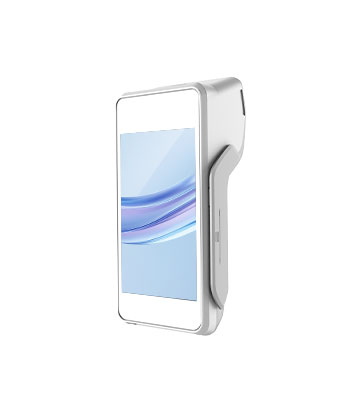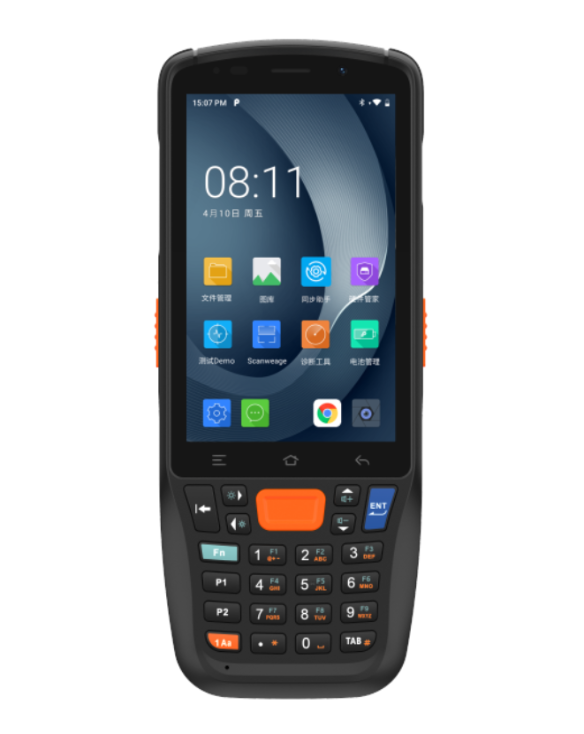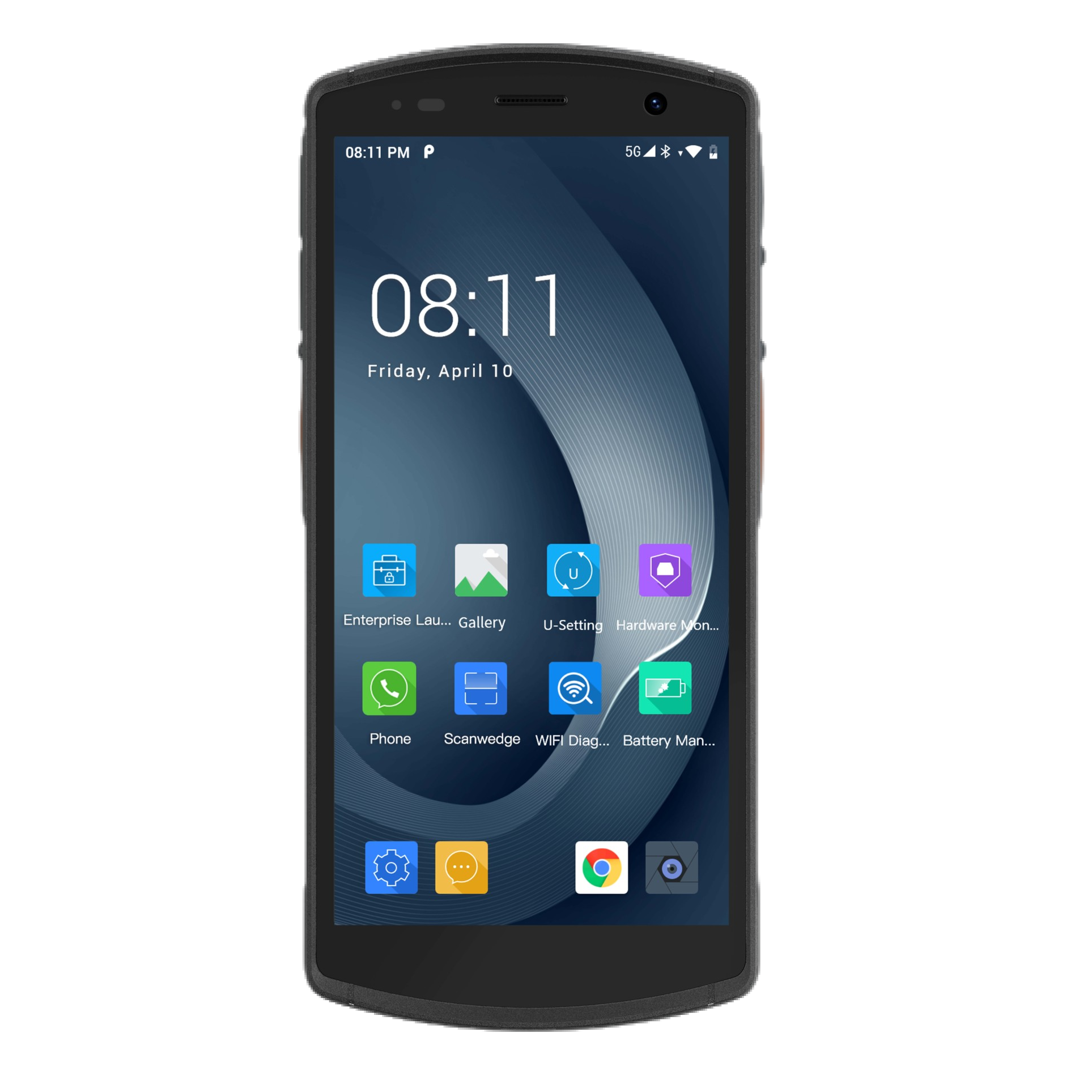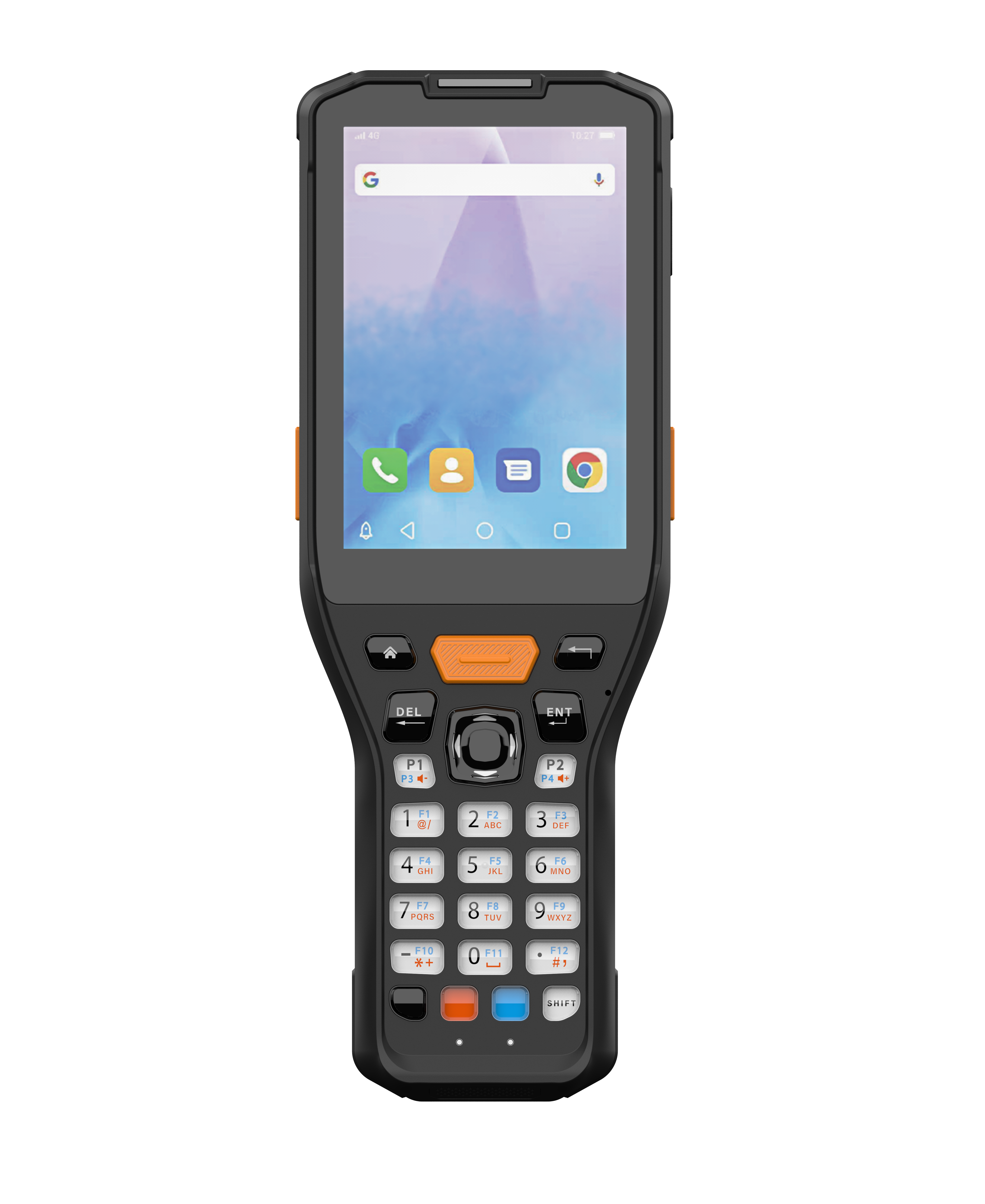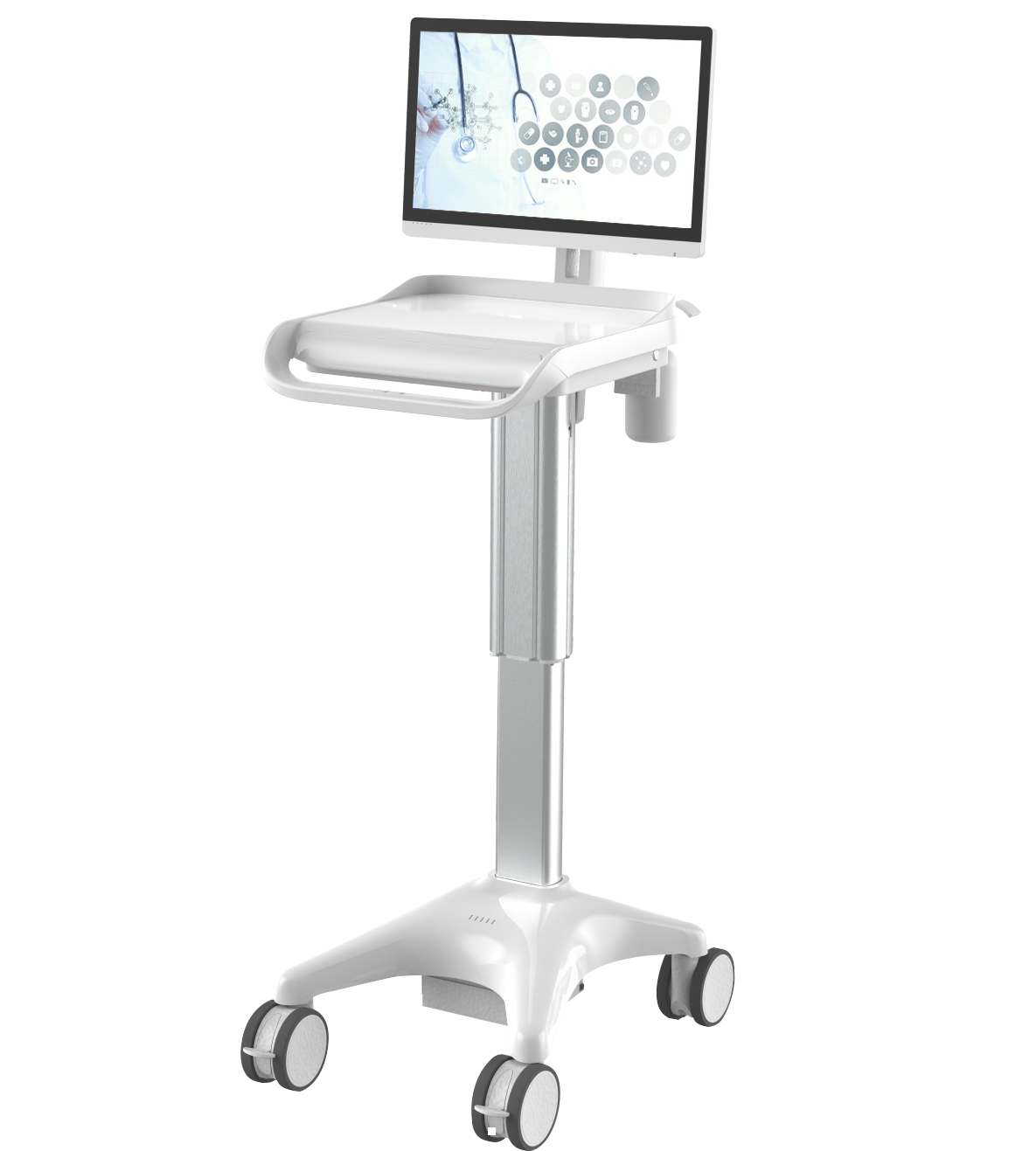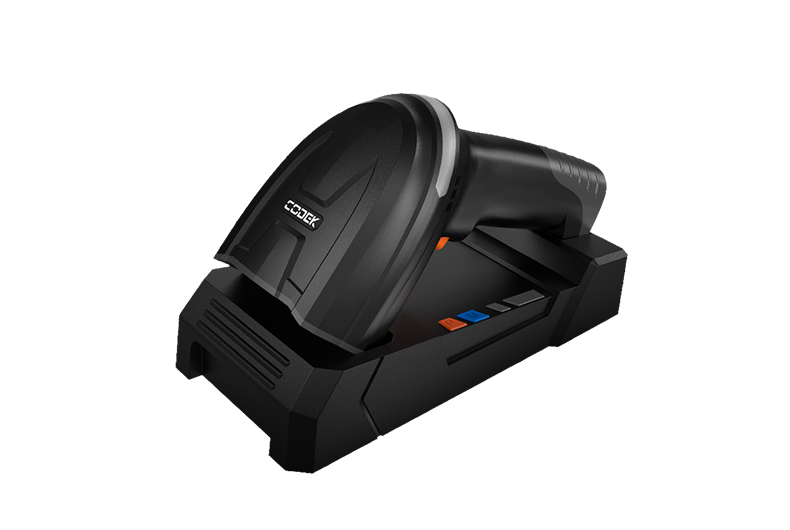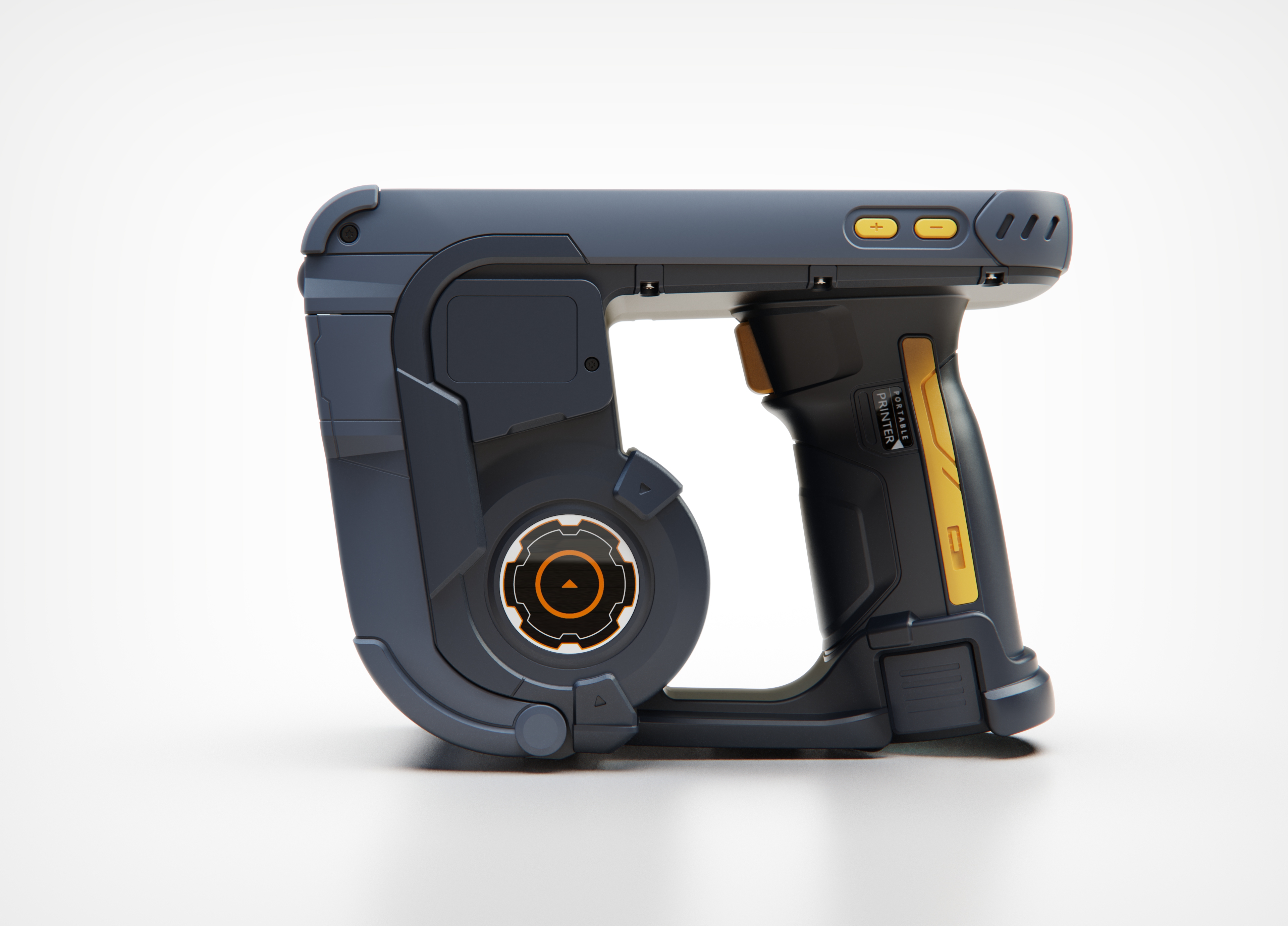Future-Proofing with RFID scanner: Innovations and Trends in Scanner Technology
In today's fast-paced industries, technology continues to drive advancements in efficiency, accuracy, and automation. One standout technology is Radio Frequency Identification (RFID), which has revolutionized the way businesses manage inventory, monitor supply chains, and track assets. With the latest innovations in RFID scanner technology, companies can future-proof their operations, ensuring they’re well-prepared to meet tomorrow's challenges. In this post, we’ll dive into the current trends shaping RFID scanner technology and how these advancements are positioning businesses for long-term success.

The Role of RFID in Modern Operations
RFID technology has evolved significantly since its early days, moving beyond simple tracking to become an essential part of today’s business operations. Unlike traditional barcode systems that require direct scanning, RFID enables non-line-of-sight scanning and faster data collection. This makes RFID particularly valuable in industries like retail, healthcare, logistics, and manufacturing, where precision and efficiency are critical.
RFID scanners read the data stored in RFID tags attached to products or assets. These scanners can be handheld RFID scanners, fixed, or mobile, offering a range of flexibility depending on the business’s needs. By quickly and accurately capturing large amounts of data, RFID scanners help businesses streamline operations, reduce mistakes, and increase overall productivity.
Latest Innovations in RFID Scanner Technology
Extended Range and Improved Accuracy
One major innovation in RFID scanners is the enhanced range and precision. Older scanners required close proximity to the RFID tags, but new models, like Urovo’s RFID scanner device, offer extended ranges, allowing for quicker and more efficient scanning without having to physically handle each item. This advancement is especially useful in large-scale operations, such as warehouses or busy retail spaces.
Seamless Mobile Integration
Another significant trend is the integration of RFID scanners with mobile devices. As businesses increasingly adopt mobile-first solutions, RFID handheld scanners that can sync with handheld mobile computers provide seamless data capture on the go. This means employees can move freely, gather data, and instantly upload it to centralized systems. The result? Less manual data entry and faster, more accurate decision-making.

Cloud-Based Data Solutions
Cloud computing is another game-changer in RFID technology. Many modern RFID scanner devices now come equipped with cloud-based data management, giving businesses the ability to store and access data from virtually anywhere. This is particularly advantageous for companies with multiple locations or those aiming to streamline their supply chain across various regions. Cloud-based solutions provide real-time insights, helping businesses stay agile and responsive.
Enhanced Durability for Industrial Use
RFID scanners are now built to withstand harsh industrial environments, from dusty warehouses to extreme temperatures. Modern scanners are more durable and feature ergonomic designs to reduce user fatigue, ensuring reliability and comfort during extended use.
Multi-Tag Reading
One of the most impactful innovations is the ability to scan multiple RFID tags simultaneously. For industries that deal with high volumes of goods, such as retail or logistics, this capability greatly speeds up the process of inventory checks and asset tracking, making operations more efficient.
Increased Security Features
With the growing use of RFID technology, security has become a top concern. Today’s long range RFID scanners come with advanced encryption and authentication features to safeguard data from unauthorized access. This is especially crucial for sectors like healthcare and finance, where protecting sensitive information is paramount.
How RFID Scanners Future-Proof Businesses
The rapid advancements in RFID scanner technology are equipping businesses with the tools they need to stay competitive and future-ready. Here’s how:
Scalability: Modern RFID scanners are designed to grow alongside your business. Whether you’re a small retailer or a large logistics provider, RFID systems can easily scale to meet your increasing needs, ensuring long-term operational efficiency.
Cost Savings: By improving accuracy and minimizing human errors, RFID scanner devices can help reduce operational costs. Features like multi-tag reading and mobile integration also streamline processes, cutting down on labor-intensive tasks.
Data-Driven Insights: With real-time data collection and cloud-based solutions, businesses gain valuable insights into their operations. This enables better decision-making, improved inventory control, and enhanced visibility across the supply chain.
Conclusion
As industries continue to grow and become more complex, the need for highly efficient technology becomes even more pressing. RFID scanner technology is evolving to meet these demands, offering innovations in range, precision, mobile integration, and cloud capabilities. By investing in cutting-edge RFID solutions, businesses can not only optimize their current operations but also ensure they’re prepared for the future.
To stay ahead, consider integrating advanced RFID handheld scanners that align with your business goals. This will ensure you’re ready to tackle both the challenges and opportunities that lie ahead.
Editor's Note:
If you want to know more about RFID scanners, please click the follow:
①The Future of Asset Tracking: Why RFID Scanners Are Essential for Modern Businesses
Examine the impact of RFID scanners on inventory management, operational efficiency, and cost savings in modern businesses.
②What is UHF RFID Reader
Explain the functionality and advantages of UHF RFID readers, focusing on their applications in various industries and how they enhance data capture and management.
③How UROVO RFID Readers Lead the Supply Chain Management
Discuss how Urovo RFID readers improve supply chain management by enhancing accuracy, efficiency, and real-time data visibility throughout the inventory process.


